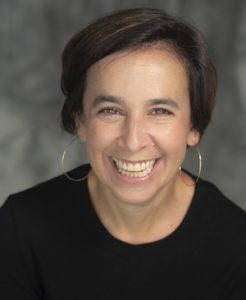Faculty and staff from across UW–Madison’s School of Education are routinely quoted or make their voices heard in newspapers, magazines, and online news media outlets. Similarly, these experts are often interviewed and showcased on a range of local, national, and international podcasts, and radio and television news reports. For the latest examples, visit our in the news archives.
Child’s play is ‘anything but frivolous,’ Barry tells New York Times Magazine
UW–Madison’s Lynda Barry discussed the power of play in a New York Times Magazine feature that was published Sept. 5, 2022, and headlined, “A Genius Cartoonist Believes Child’s Play Is Anything But Frivolous.”

Barry, who is a professor of interdisciplinary creativity with the School of Education’s Art Department, was awarded a prestigious MacArthur Fellowship in 2019 — an honor that’s often referred to as a “genius grant.”
It is fair to say, notes the article, that Barry is an expert on self expression and making art. But, in many ways, the story adds, not nearly as much of an expert as “your average little kid.”
“Adults think that kids playing is some nothing thing,” Barry tells the magazine. “But play is a different state of mind, and it can help us do so many things if we just allow ourselves to get back to it.”
In the Q&A with New York Times writer David Marchese, Barry speaks about her experience working with college students — and others — and helping them rediscover play.
Barry also speaks about how creativity and making art has helped her through life’s challenges, including her struggles with depression.
“I’ve found that engaging in this kind of work — anything that adults call art and that kids might call a toy; that contains something alive — seems to make me feel that life is worth living,” she says.
Halverson’s new podcast features Lin-Manuel Miranda, other top artists
When artists write unforgettable songs or give iconic performances, they can change our lives. But first, someone changes theirs. In the new podcast “Arts Educators Save the World,” artists talk with host Erica Halverson alongside their teachers and mentors about how those collaborations made them who they are today.

In the first episode released Aug. 29, Lin-Manuel Miranda, the ultra-prolific creator of “Hamilton,” and Robert Lopez, the first-ever double EGOT (Emmy, Grammy, Oscar, and Tony awards) winner and co-writer of songs from “The Book of Mormon,” “Avenue Q,” and “Frozen,” sit down with their elementary school music teacher Barbara Ames. Both artists credit her for guiding them toward their life’s work.
“The direct education we got from Barbara … was life changing for me,” attests Miranda. Adds Lopez, “I was about 13 when I started writing songs for shows, and I believed that I could because Ms. Ames told me I could.”
Halverson is a professor and department chair in the School of Education’s Department of Curriculum and Instruction. She is the author of “How the Arts Can Save Education,” a blueprint for how the arts can transform our broken system of teaching and learning.
More information: artseducatorspodcast.com
Ladson-Billings shares expertise with PBS Wisconsin’s ‘Why Race Matters’
UW–Madison Professor Emerita Gloria Ladson-Billings was featured this past fall in the new season of PBS Wisconsin’s “Why Race Matters,” a digital series elevating issues of importance affecting Wisconsin’s Black communities.

In the series, host and producer Angela Fitzgerald connects in conversation with everyday people whose work and commitments center on race, identity, and achieving racial equity in the state. The program shares the layered, lived experiences of Black people in Wisconsin, exploring topics simultaneously historic and urgent — offering hope, guidance, and resources to thrive.
Ladson-Billings, the former Kellner Family Distinguished Chair in Urban Education with the School of Education’s Department of Curriculum and Instruction, appeared in the premiere episode of the new season, which was released on Sept. 12. She speaks with Fitzgerald about the history of Critical Race Theory, what it is, and how it’s used in educational settings.
The season series streams at whyracematters.org.
In other reports …

• Christopher Saldaña, an assistant professor in the Department of Educational Leadership and Policy Analysis, is the host of a podcast from the National Education Policy Center (NEPC). The podcast, “NEPC Talks Education,” is described as “30 minutes of high-quality policy information for educators, community members, policymakers, and anyone interested in education.”
• During an appearance this past fall on “Capital City Sunday” — a program that airs on Madison’s local ABC affiliate, WKOW/Ch. 27 — School of Education Dean Diana Hess spoke about the importance of giving educators the skills and tools they need to be able to effectively teach about elections. Hess acknowledged that teaching about politics and elections is more challenging now, amid heightened political polarization, but said it is possible — and essential — to do it well.
• Wisconsin Public Radio utilized the expertise of Maxine McKinney de Royston for a report this past fall examining how schools are grappling with significant declines in test scores that are a fallout from the pandemic. McKinney de Royston, an associate professor with the Department of Curriculum and Instruction, says giving into the “learning loss narrative” adds pressure in ways that are not supportive of learning.